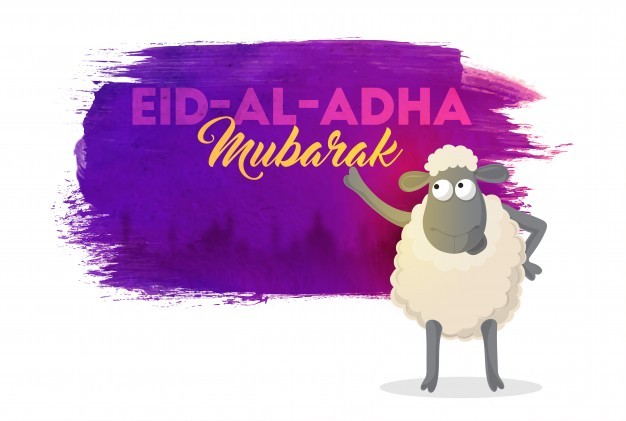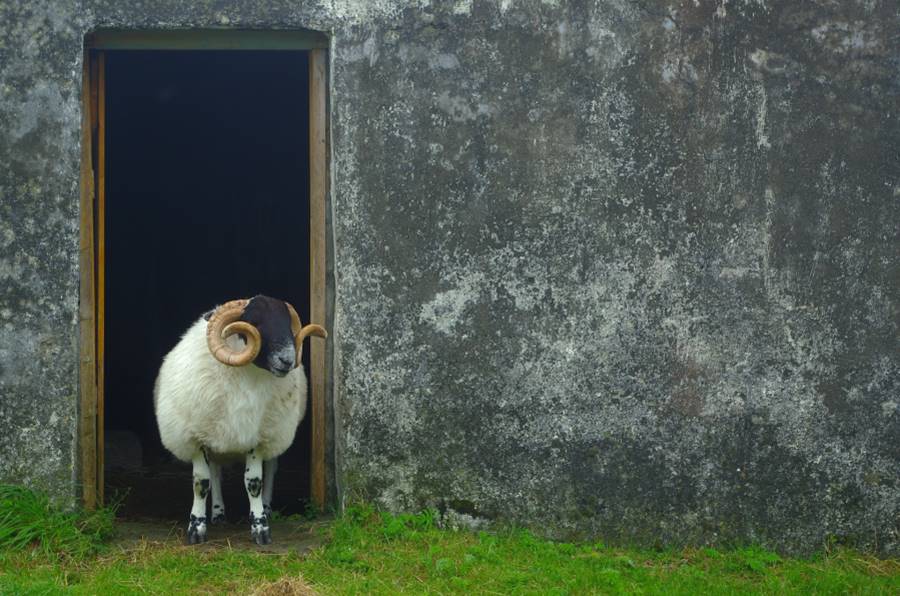Well, you may have some valid reasons behind your feelings:
1- Eid Al-Adha is different from Eid Al-Fitr. Here, you did not fast for 30 days and break your fast on the day of Eid.
There is no change of habits. You don’t get that happiness that accompanies your first breakfast among family and friend after four weeks of fasting.
2- Even on the spiritual side, in Eid Al-Adha you don’t get the sweetness of achievement after fasting Ramadan. Ramadan has been always a turning point in the life of many. The first real test for that change occurs usually on the first day of Shawwal. Once again, we don’t get all of that in Eid Al-Adha.
3- You may have a completely different argument: brother! How can I enjoy my Eid while My Muslim brothers and sisters are suffering? Some people even quote Salah Eddine Al-Ayyubi when he was asked to smile but he said “how can I smile while Al-Aqsa Mosque is a hostage”?
4- In some communities, they even have this weird ritual of not celebrating Eid AT ALL during the next year that follows the death of a close family member (a dad, husband, sister, etc…).
Every Eid season, I hear all these arguments and others; even when I don’t hear them, the same questions get implanted in my head like a virus!! In this article, we will discuss these questions and show you why it is MANDATORY for you to celebrate and (at least try to) enjoy Eid!
Celebrating the achievement of others
Regarding points 1 and 2, there is no question that Ramadan is a “global” season. It knocks the doors of every believer and wakes up many people from their heedless lazy life. Consequently, Eid Al-Fitr becomes the natural celebration of that achievement.
For Eid Al-Adha, you are basically celebrating the achievement of other Muslims who completed their once-in-a-life-time obligation of Hajj. You are expected to feel happy because other Muslims had the honor to pray next to the Ka`bah, visited the Prophet’s mosque, and stood on the sacred mountain of Arafat.
It is one of these moments when you actually thank Allah for a blessing that was given to others, wonderful, isn’t it?! It is one of these amazing moments when the “I”, “me”, and “mine” melts down into “We”, “Us”, and “ours”. Eid Al-Adha aims at teaching us how to belong to our Muslim Ummah, and directs our attention to that great gathering.
One time a teacher told me a valuable piece of advice: In order to appreciate (or try to understand) the wisdom that Allah placed in certain things: imagine if these things DID NOT exist in the first place! Imagine the Hajj activity without Eid Al-Adha, I am sure that it won’t have the same impact.
People might not even be asking about the day of `Arafah, since there is no Eid after it. The effect of Hajj would have been a local effect to only those who attend the season; it would not have this world-wide significance, due to many factors, majorly Eid Al-Adha..
Bottom Line is: Please feel happy for those Muslims who – hopefully – leave that gathering with all of their sins wiped away, and make sincere supplication for yourself (and for me also, the author of this article) to be granted that honor in future years, God willing!
Celebrating Eid and the challenges of the Ummah
I applaud every brother and sister who feels the bitterness in the lives of others while trying to enjoy theirs. This is a solid proof of their faith; this is a true indication of their brotherhood that is becoming rare in these days.
However, let’s look at the completely opposite side: I know some brothers who became addicted to news about the Muslim world (Syria, Palestine, Iraq, Burma, etc…). They ended up decreasing their performance and productivity at work, with family, and even in Islamic events at their local communities.
I believe that one of the objectives of the Satan is to decrease your goodness and your righteous deeds, especially those that involve helping others.
For certain types of people, Satan can easily trick them into sinning and bad habits. For others, his plan becomes: keep them busy with things that are of interest but THEY CANNOT DO ANYTHING about, instead of them being busy with WHAT THEY CAN ACTUALLY DO.
According to this criterion, it is really important for us to give our souls that break, to enjoy our Eid with Halal fun, to spread that happiness among our family and friends, while being aware of the pains of the Muslim Ummah. Is it difficult?
Yes of course, because people always have a tendency towards extremism, especially when it comes to feelings. They either forget completely about Muslims around the world, or become obsessed with following their news and lose that value time for their selves.
With all due respect to the Muslim figure Salah Eddine and his amazing life, his statement is not a source of legislation in Islam. Only the Quran and the authentic Sunnah can give us that balanced view of life.
Only these two sources can give us that balanced heart that can cause a smile on the face for Eid, while at the same time having a tear in the eye for the calamities of the Muslim Ummah, or for the personal challenges that may happen to someone, such as losses in life, wealth, or property.
At the end of the day, we have to be sure that our happiness in these days is a form of worship, as is exactly our tears and our worries.

